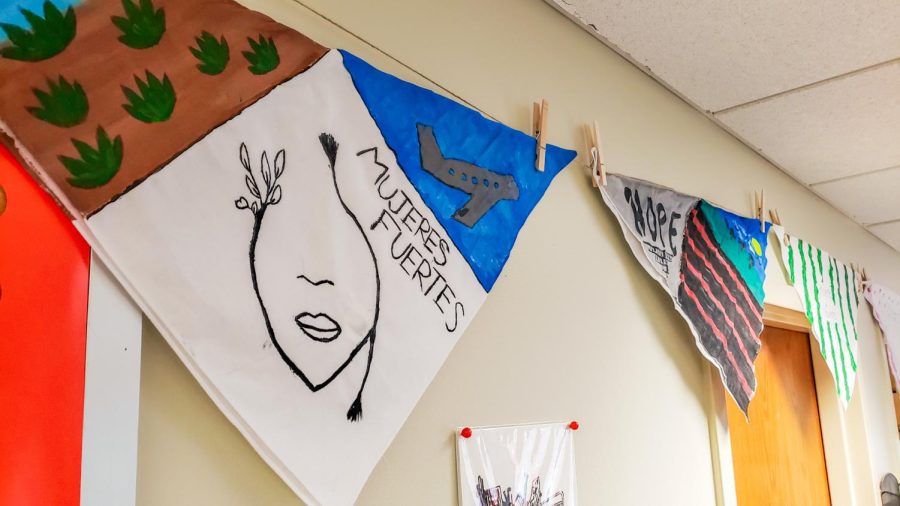National Farmworker Awareness Week Observed at EWU
April 13, 2023
National Farmworker Awareness Week, an annual week of events designed to bring attention to the struggles that farm workers often face, was observed at EWU from Apr. 3rd – Apr. 7th.
This year marks the third year of Eastern Washington University’s observance of National Farmworker Awareness Week (NFAW), which coincides with the birthday of famous farmworker rights activist Cesar Chavez. Facilitated by the College Assistance Migrant Program (CAMP), the week featured three events; The Bandana Project, a long sleeve shirt drive, The Cesar Chavez Blood Drive.
The Bandana Project
The Bandana Project was started by Mónica Ramírez in 2007 as a way to show solidarity with farmworker women. A 2010 survey in California Central Valley found that 80% of the local female farmworkers have experienced sexual harassment according to The Bandana Project website.
White bandanas were decorated by participants in a variety of ways in order to show support for farmworker women in these situations. About 45 bandanas were completed at EWU and are currently being displayed in the CAMP main office (Monroe Hall 305).
“A bandana symbolizes many of the women who wear very heavy clothes or multiple layers so that way they blend in as males and don’t get harassed or cat-called,” said Erik Chavez, a Graduate Student Assistant for CAMP and coordinator of the EWU Bandana Project. “It is also just more protection. If something were to happen, it’s just harder for the person to do anything to them.”
Chavez said many farmworker women feel like they are unable to retaliate against this unjust treatment because they are undocumented and fear deportation.
Long Sleeve Shirt Drive
A long sleeve shirt drive is held in order to help supply farmworkers with protective clothing. According to the NFAW website posted by the Association of Farmworker Opportunity Programs, long sleeve shirts are important in order to prevent pesticide and heat-stress related illness in farmworkers.
As of April 6th, EWU’s CAMP has collected over 25 shirts to donate to farmworkers in need.
Cesar Chavez Blood Drive
On April 5th, there was a blood drive on EWU’s Cheney campus in honor of Cesar Chavez’s birthday.
“During his life, [Chavez] left a legacy behind of not only farmworker rights but also general humanity, and part of that was donating blood,” said CAMP program coordinator Rocio Rangel.
The roughly 40 CAMP schools nationwide have an annual competition to see how many donations of blood they are able to receive. This year, EWU’s program received about 45 donations over the 6 hour event period.
Rangel said that the agricultural industry is one of the only nationwide that is allowed to have children as young as 13 in the fields, and the proper usage of pesticides is not enforced. She said that people know that nobody will check to see if things are done correctly, and so abuses of workers can happen very easily.
The goal of farmworker awareness week is to make people aware of the labor that goes into the preparation of the food they eat.
“The price you pay at the grocery store is not necessarily indicative of the value of the hard work that went into that piece of lettuce, or limes, or lemons or whatever it might be,” Rangel said. “There is human capital that went into that, and often it is at the expense of their own families and their own well being.”







